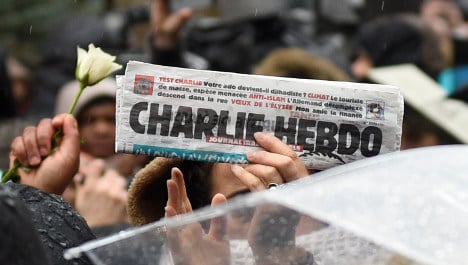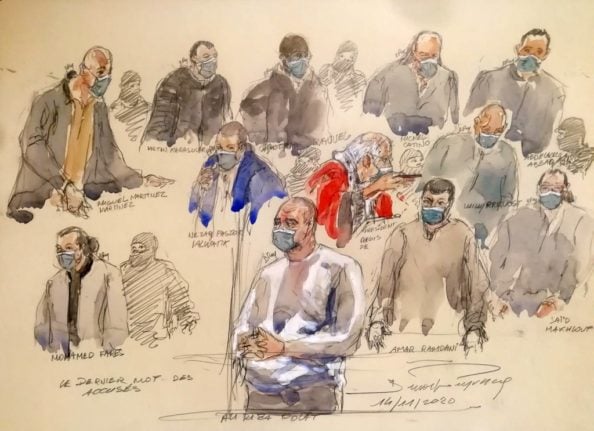CHARLIE HEBDO
Charlie Hebdo copies sell for thousands online
Within hours of a terrorist attack that decimated the staff at Charlie Hebdo, copies of the latest issue of the satirical French weekly were drawing online bids of more than €70,000 ($82,400).
Published: 8 January 2015 21:21 CET
Updated: 9 January 2015 10:28 CET
Updated: 9 January 2015 10:28 CET

Photo: AFP
The 60,000 print run of issue number 1177 sold out nearly instantly following the assault on the magazine's headquarters that killed 12 people, including some of its top journalists.
By midday Wednesday, scores of the three-euro magazine bearing a cartoon likeness of controversial French author Michel Houellebecq on its cover were popping up online at astronomical prices.
Of over 80 ads offering the issue on eBay, some were available for immediate purchase at up to 50,000 euros.
"Rare, latest issue Charlie Hebdo," said one advert.
Charlie Hebdo has already announced it will be back next week with a one million-copy memorial edition in response to the global outrage over the massacre.
Bids on some editions had gone over 70,000 euros, but as winners of eBay's auctions can back out, there is no guarantee the money will come through.
In addition to the recent copies, people were offering some of the satirical paper's other notorious issues, including the November 2011 edition that prompted a firebombing of its offices.
That issue titled "Charia Hebdo", with an image lampooning the Prophet Mohammed on the cover, had at one point received bids that topped 14,000 euros, which the seller promised to donate to helping victims of the attack.
When contacted by AFP, eBay said it can't stop people from being interested in a certain type of item.
"It's a tragic event and it's drawing lots of media attention, which encourages curiosity. The more people are interested in something the higher auctions go," an eBay spokesperson told AFP. "It's this curiosity effect that we can't do anything against."
However, the company reserves the right to pull ads that violate its terms of use.
Url copied to clipboard!


 Please whitelist us to continue reading.
Please whitelist us to continue reading.